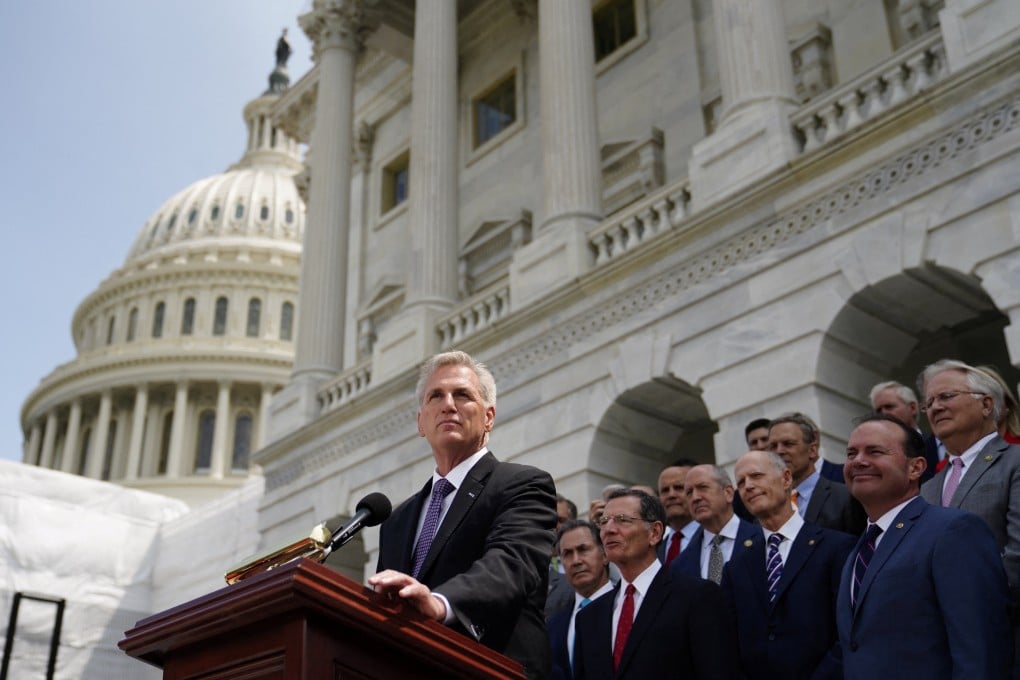Macroscope | Debt ceiling crisis: can a US unable to put its financial house in order counter China overseas?
- The debt limit stand-off poses implications for the world, as the uncertainty may bring a US recession that affects the country’s trade partners
- For the US to play a more active role abroad economically, as China has, Washington must get its financial act together

The 19th-century Austrian statesman and diplomat Klemens von Metternich is credited with the saying, “When Paris sneezes, Europe catches a cold.”
This expression has, more recently, been applied to the United States and its implications expanded beyond Europe, to the entire world. The US’ economic and security decisions, including on trade and troop deployment, have, since the dawn of the post-war order, had implications beyond its borders. Unfortunately, this increasingly applies to its internal politics as well, which would not be nearly so disconcerting were its politics not so dysfunctional.
It became even more pressing in January, when Kevin McCarthy’s gruelling effort to win the House speakership included concessions to Republican hardliners, which weakened his position and left him more vulnerable to their demands, including for steep spending cuts in return for lifting the debt ceiling via Congressional action.
Just the uncertainty created by this haggling resulted in the US facing its first-ever rating cut by Standard & Poor’s in 2011. The US has been haunted by the spectre of recession for most of the post-pandemic recovery, but has escaped – thus far. This time the uncertainty may seal a recession, and a default almost certainly will.

